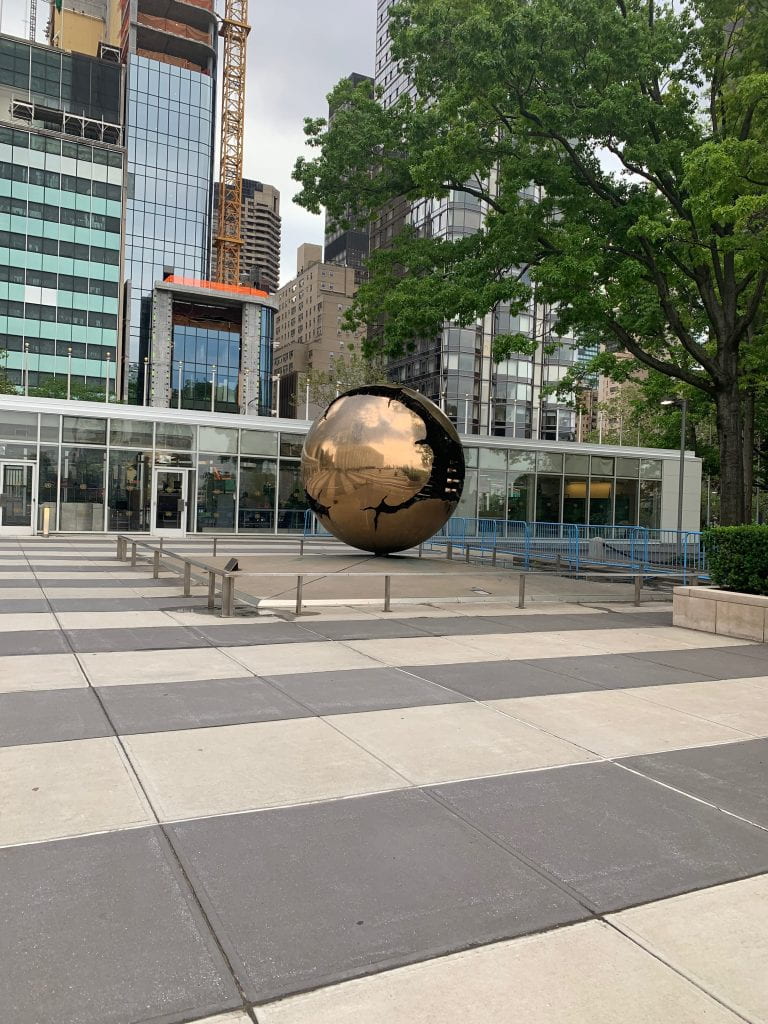
A few months ago, I was sent to the United Nations as an Official Rapporteur to the 12th Session of the Conference of State Parties to the Convention on the Rights of Persons with Disabilities (COSP). The theme of this year’s COSP was implementing the Convention on the Rights of Persons with Disabilities (CRPD) to ensure the inclusion of persons with disabilities (PWD) in society. While at the conference, I attended several side events that highlighted how different NGOs, companies, and organizations have made efforts to include PWD in all facets of society. Furthermore, I had the opportunity to transcribe the General Debate and Round Table Three Discussion of the General Assembly, both of which focused specifically on the inclusion of PWD in society through participation in cultural life, recreation, leisure, and sport. For this blog post, though, I want to focus on two of the side events I attended, because I believe that the personal lessons they taught me were the most valuable lessons I learned at the conference.
The first side event I attended detailed how artificial intelligence (AI) and other technology can be used to increase the inclusion, participation, and independence of PWD. Many of the panelists noted that while AI can help PWD, it can also be an obstacle that further perpetuates the societal exclusion of PWD. In response to this point, Megan Lowery, the representative for Microsoft, highlighted the importance of including PWD in the creation and dissemination of technology, noting that their input is indispensable for ensuring that the AI is in fact facilitating PWD’s inclusion and participation. As a testament to this, Alejandro Moledo from the European Disability Forum (EDF) detailed “Plug and Pray?”, a report created by the EDF to provide a perspective from PWD on emerging technologies. The report highlights the concerns and risks PWD have about these technologies and provides partial recommendations to policy makers and AI creators.
The second side event I attended focused on deinstitutionalization in the Arab region to support the inclusion and independence of PWD. As a Middle Easterner myself, I was particularly excited about this panel and the insights it would provide. Her Excellency Haifa Abu Ghazaleh and Her Excellency Ghada Wali both detailed that institutions should be made to provide health care, educational opportunities, and other resources for PWD rather than just being institutions where PWD are placed. In this way, PWD would have systems of support that would allow them to live independently while also giving them access to opportunities that could increase their inclusion in society. The discussion was opened to the panelists, all of whom were PWD; Mr. Ibrahim Abdullah, Mr. Mohammed Lotfy, and Mr. Muhannad Alazzeh. Mr. Abdullah stated that he is supportive of deinstitutionalization due to the fact that institutions isolate children with disabilities from their communities, while both Mr. Lotfy and Mr. Alazzeh supported transforming the institutions into support systems for PWD.
While these events were incredibly informative, it is not the information alone that has stuck with me. As I watched the panelists and speakers share their thoughts, the phrase, “a seat at the table”, continuously came to mind; the panelists and speakers at both side events I detailed were PWD discussing issues that PWD face. To me, this is what true representation is supposed to look like. When dealing with issues pertaining to any minority group, the people from that minority group should be responsible for leading the discourse. It is upsetting to see, then, that many people try to lead discourse when the discourse is not theirs to lead. Being well versed on the plight and issues that other minority groups face does not and should not make allies feel as though we can adequately address these issues. It is true that all minorities face struggle, but that is the extent of the commonality between us; every minority faces struggles differently, and we cannot assume that our own struggles are similar to, or even on the same level as, the struggles others face. After being at the conference, I realized that sometimes I too try to be a voice for others. However, I understand now that when it comes to discourse pertaining to other minorities, my voice is solely meant to be used to support, rather than to supplant, their voices.
From this, I also learned what it means to truly be an ally. An ally is someone who stands on the periphery of the aforementioned table, allowing the ones whose issues are being discussed to be the ones claiming the seats. However, as allies, we cannot be selective on which tables we stand on the periphery of, and this is where the conference revealed a major fault in my being an ally. I pride myself on being an adherent to intersectionality, so I was disappointed in myself when I realized that I have never included PWD within the realm of my discourse pertaining to minority rights. However, to be pro-black, pro-Muslim, pro-women, etc. is to be an advocate for the rights of PWD; these identities are not mutually exclusive. Thus, when I say that I am an adherent to intersectionality, I have a responsibility to include all minorities within this claim of adherence.
I believe that for any internal growth to occur, we need to be challenged. Without being challenged, our thought processes and views of life are static, hindering us from moving forward and evolving into better versions of ourselves. I am grateful to the IHR and Dr. Reuter for giving me the opportunity to attend the COSP, for without this experience, I do not think I would have had these faults revealed to me as clearly as they were. As I move forward, I will carry these lessons with me and continue working on bettering myself as both a person and an ally.
